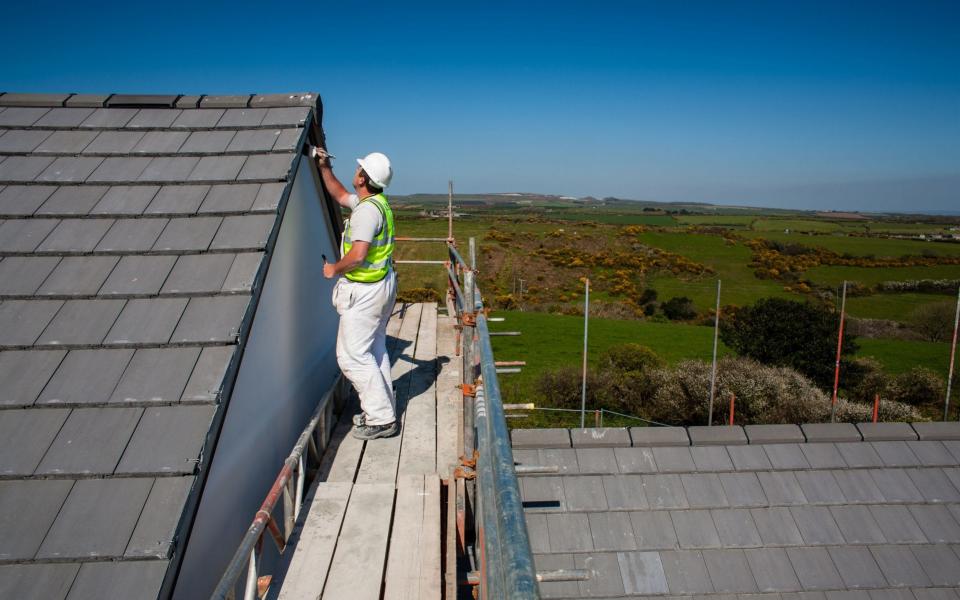One in five construction workers building homes are foreign-born, putting Government target in doubt due to Brexit

Almost one in five workers building homes are foreign-born - far higher than official numbers - suggesting that the Government's ambitious new homes target could be at risk if Brexit results in a reduction in workers travelling to the UK.
A survey by the Home Builders' Federation (HBF) found that the reliance on foreign workers is higher in housebuilding than the wider construction industry. It found that 19.7pc of workers building homes across the country are foreign-born, with 17.7pc from EU countries.
This is in contrast with the Government's figures which suggest that just 12.6pc of workers in the general construction industry are foreign-born across the UK.
The proportion of foreign-born labourers rises to 56.3pc on London sites, with 49.5pc from EU countries. Across the country, Romania is by far the most common country of origin, followed by Poland, Lithuania and Ireland.

The HBF surveyed 37,167 workers on more than 1,000 sites for the census, which it has provided to ministers as they decide the status of EU workers. It has asked the Government to secure the status of EU-born workers as soon as possible, and to make sure that future immigration arrangements allow housebuilding roles. Last month, the construction industry came to together to warn the Government of the consequences of a "cliff edge" for vital EU workers created by Brexit.
The HBF also found that foreign-born workers are largely younger than those born in the UK, suggesting how this reliance on EU workers will only grow in the years to come in order to meet the Government's target of building 300,000 homes a year by 2025. More than 22pc of UK-born workers on housebuilding sites are over 50, compared to just 10pc of EU-born labourers. It comes amid a severe skills shortage caused by an ageing population and a lack of new entrants, and over the next 10 years the workforce will decrease by 20-25pc.

Stewart Baseley, executive chairman of the Home Builders Federation, said: “The results of this census clearly demonstrate the reliance the industry currently has on non UK workers. Output is up a massive 74pc in recent years but achieving the very challenging targets set by Government will require further big increases in workforce capacity.
"While the industry is investing heavily in recruiting and training young people leaving our schools, colleges and universities, continued access to overseas workers is absolutely essential.”
A separate survey by construction consultancy McBains found that just 38pc of developers have increased their rate of housebuilding in the last year, down from 50pc in May 2016 before the vote to leave the EU.
They said that this was due to a weakening of demand, which was a reason given by 38pc of respondents, as well as a lack of skilled labour, finance and problems with the planning system.
The survey also found that housebuilders are largely pessimistic about hitting Government targets: just 30pc thought that building a million homes by 2020 could be achieved, an aim which has since been eclipsed at the Budget to 1.5m by 2025.

 Yahoo Finance
Yahoo Finance 